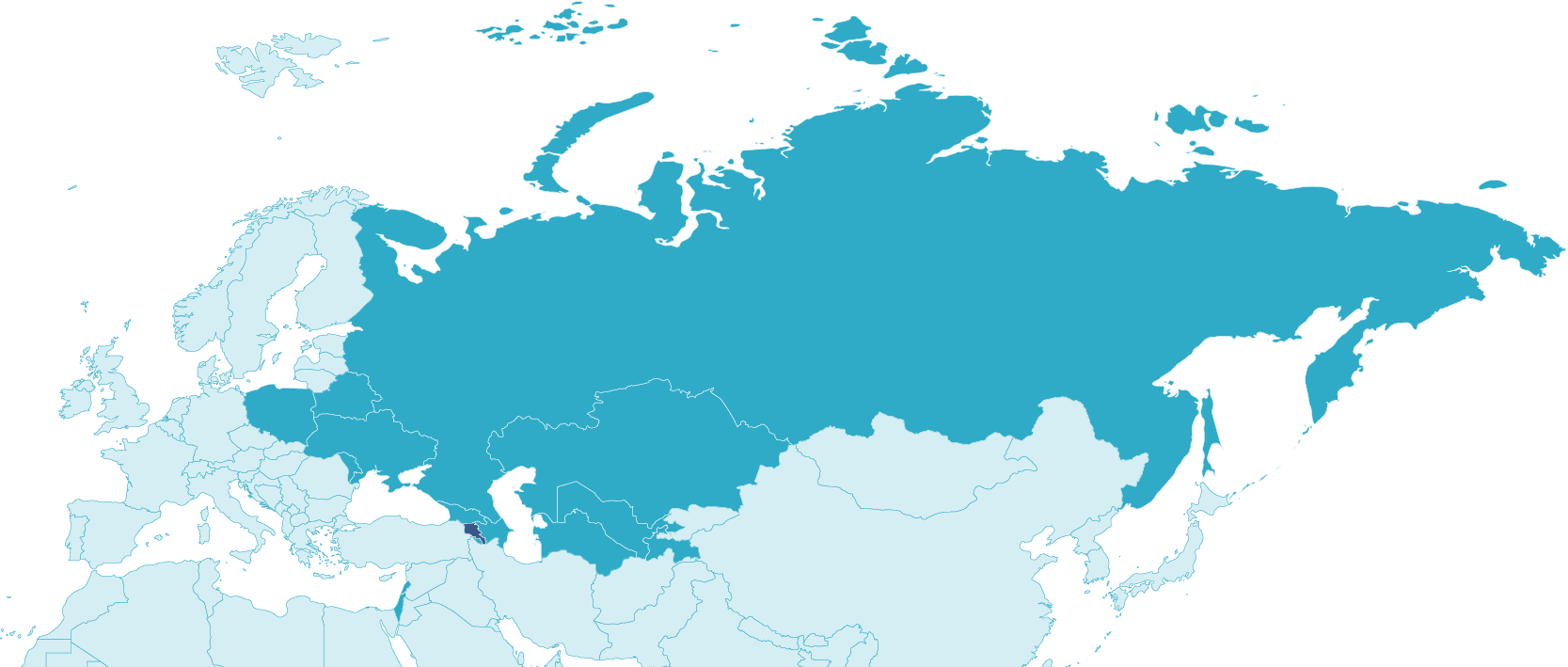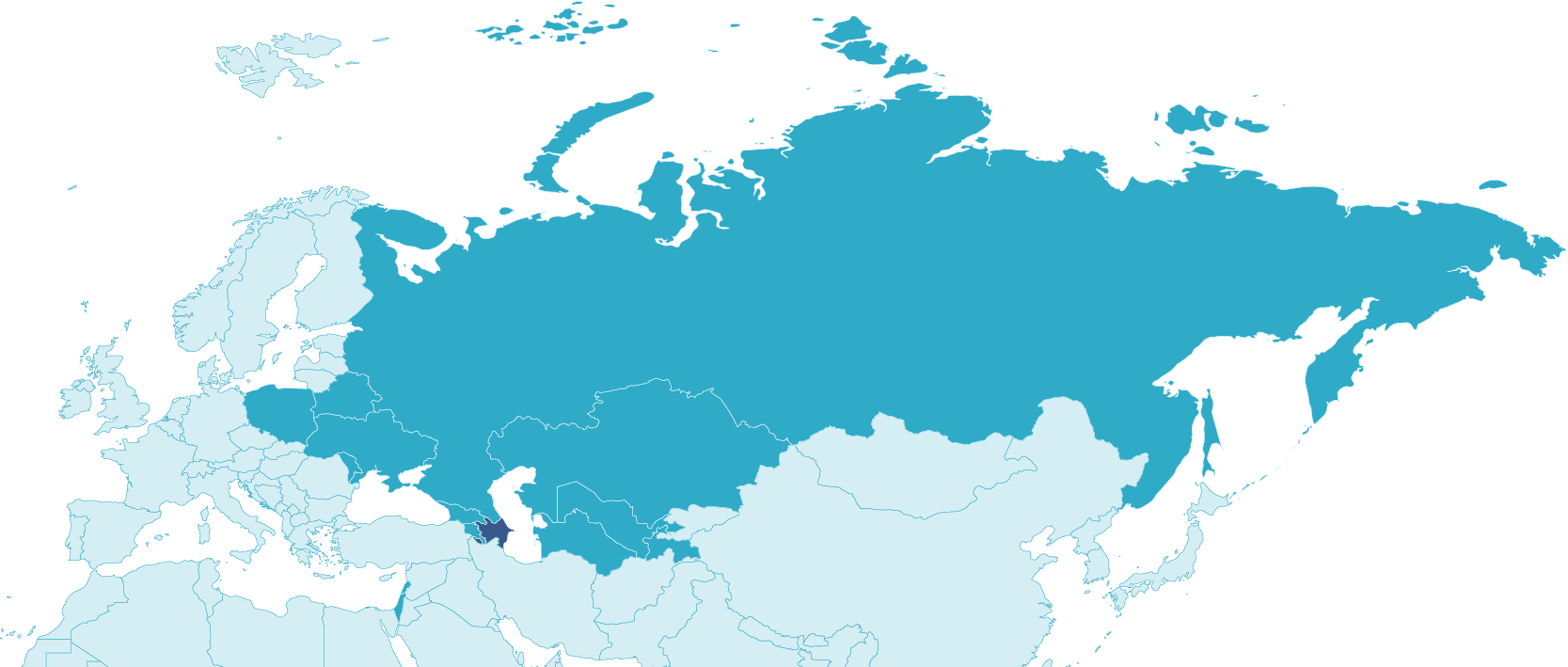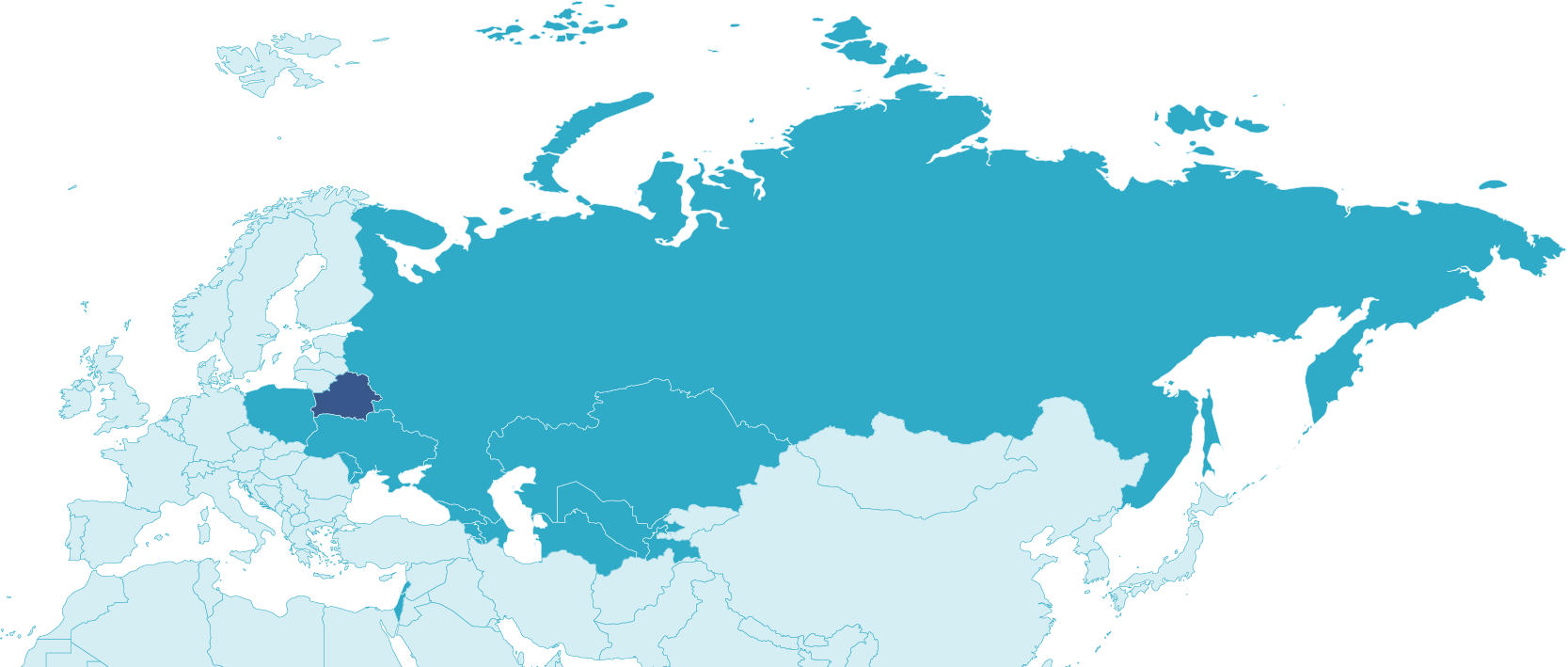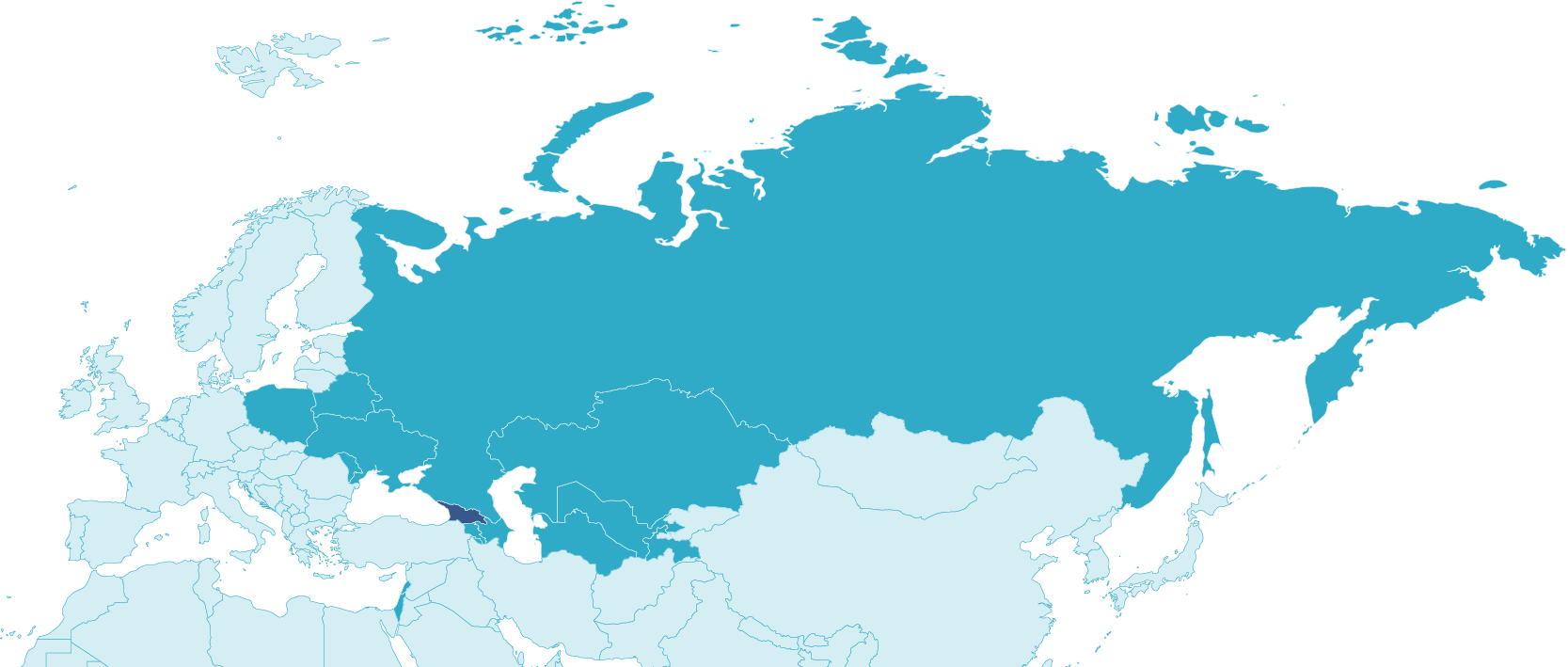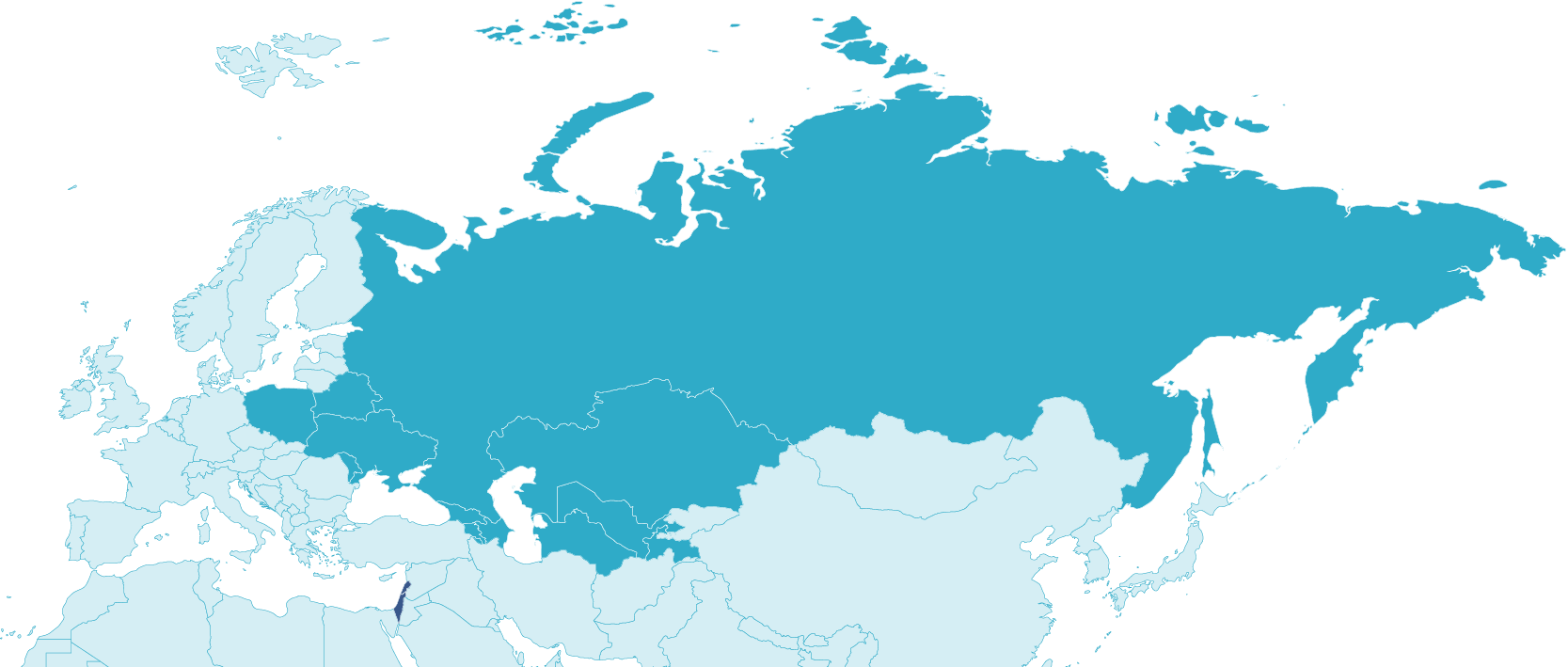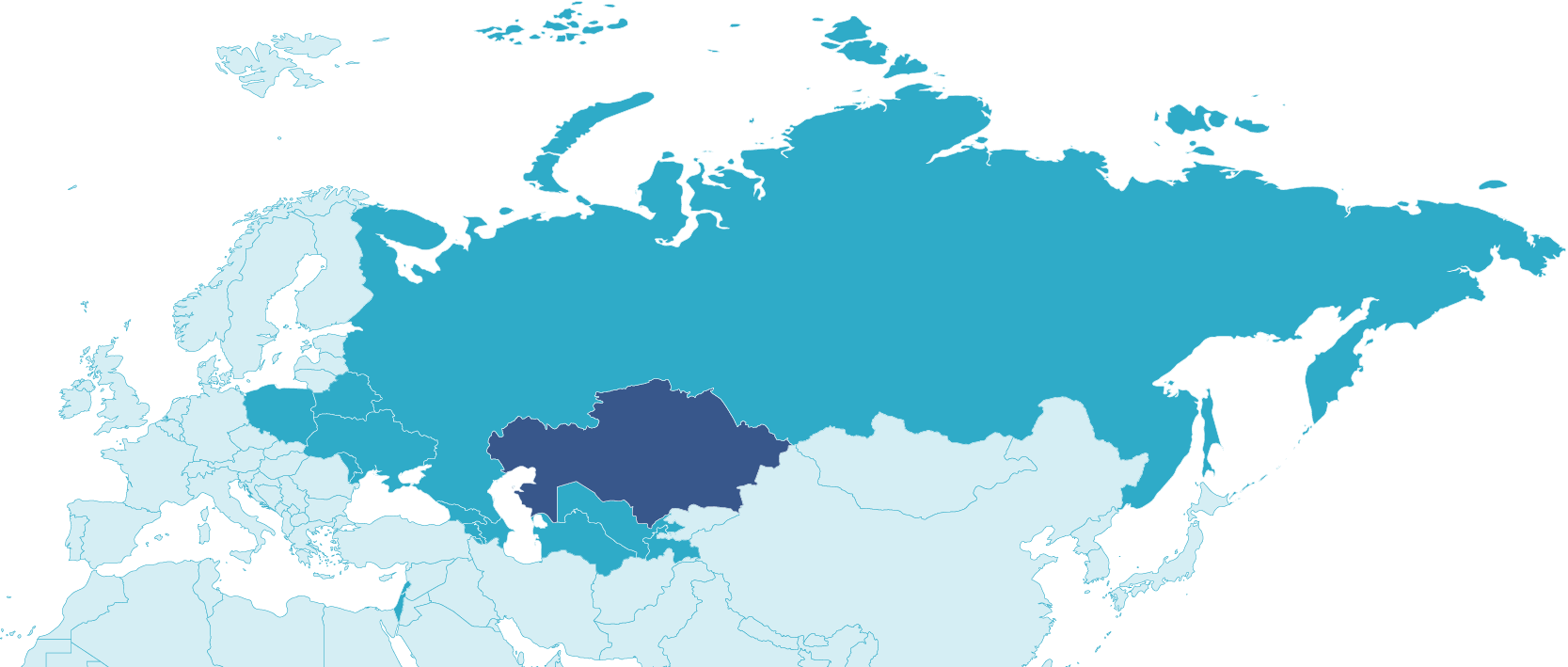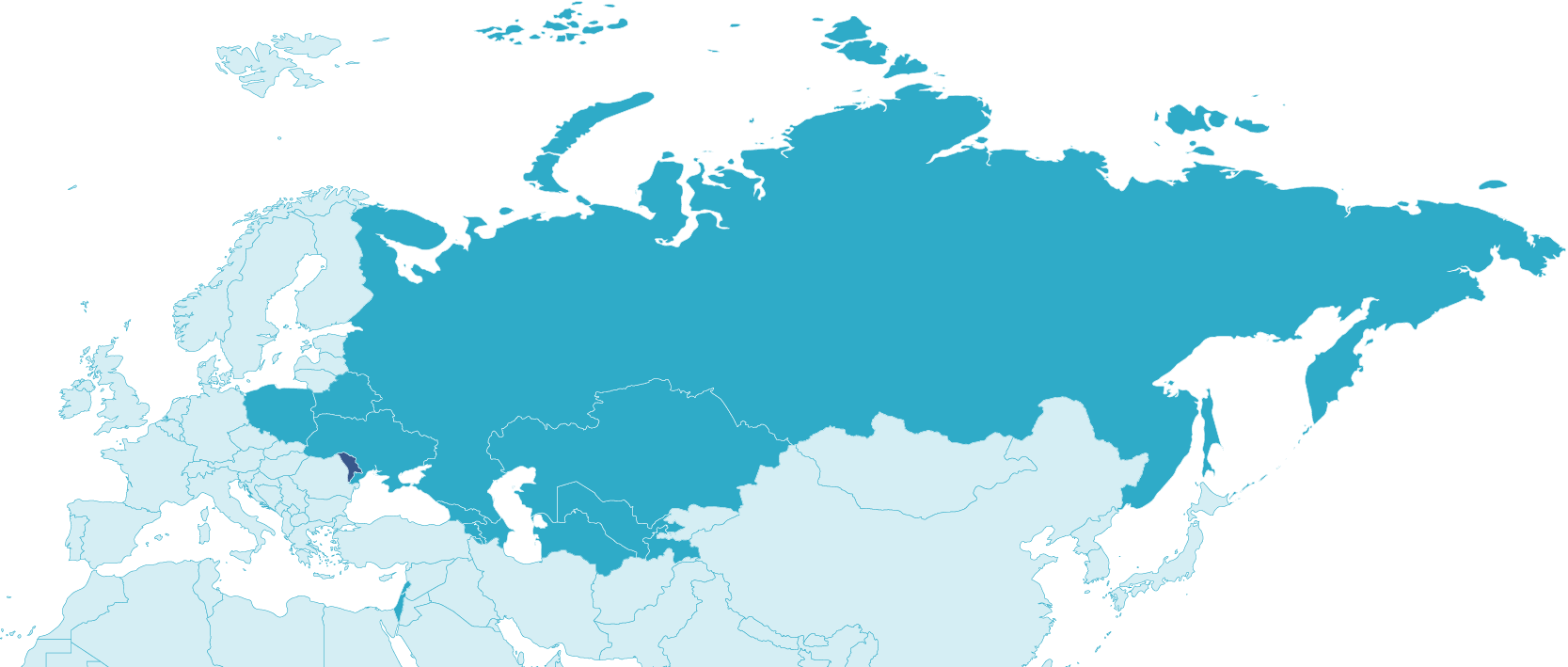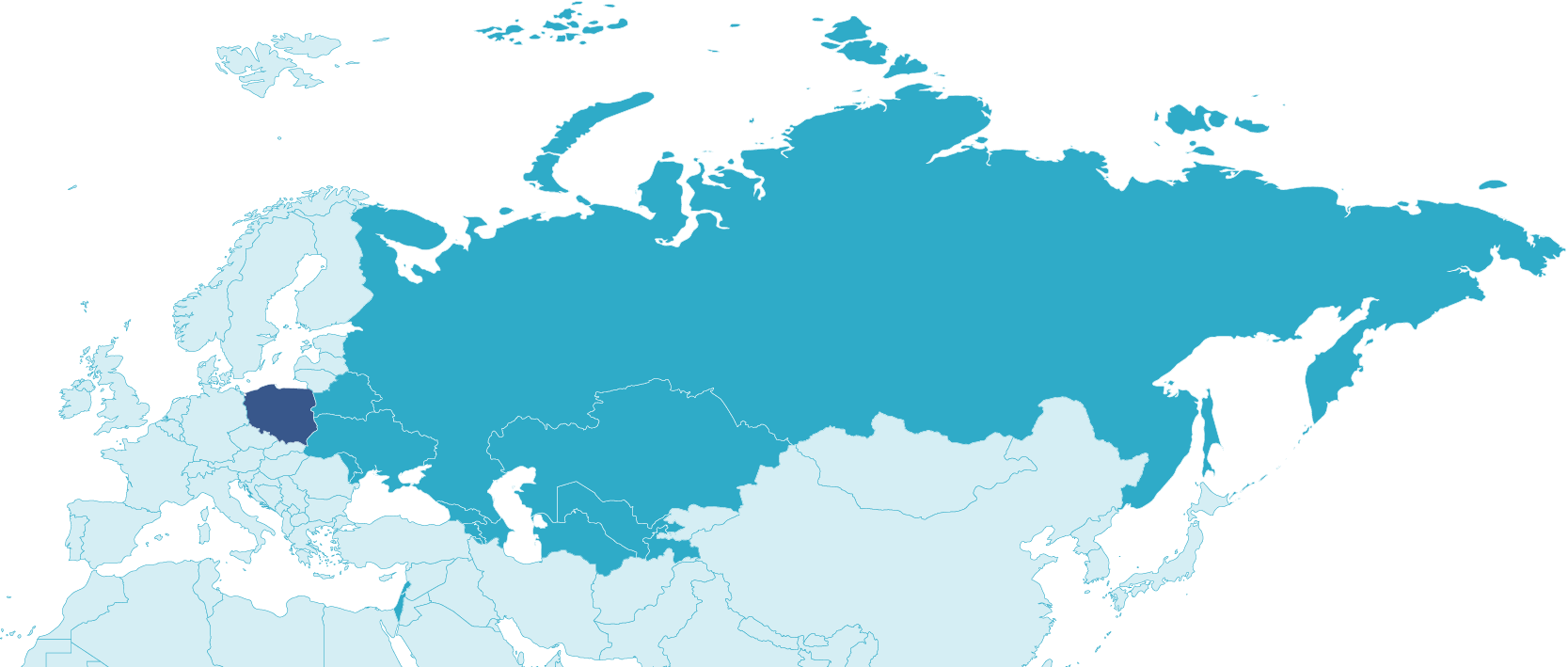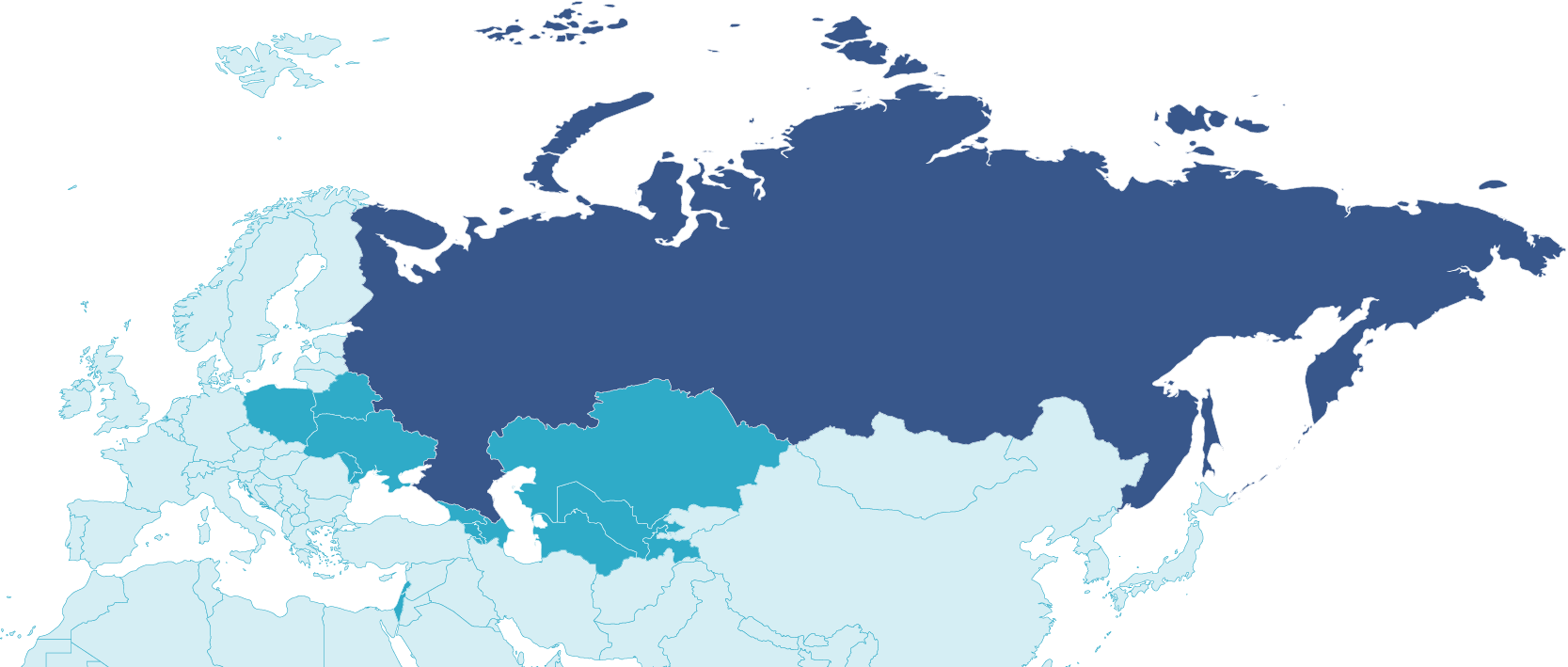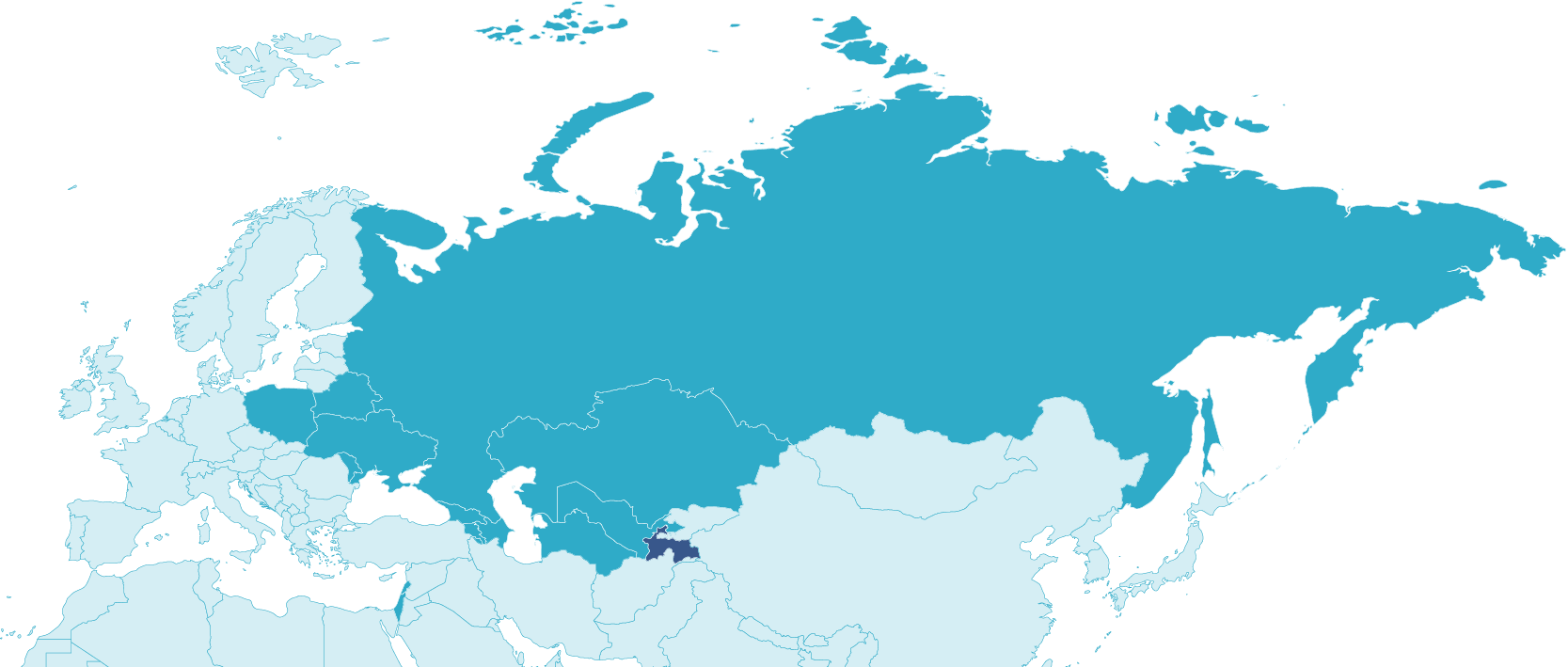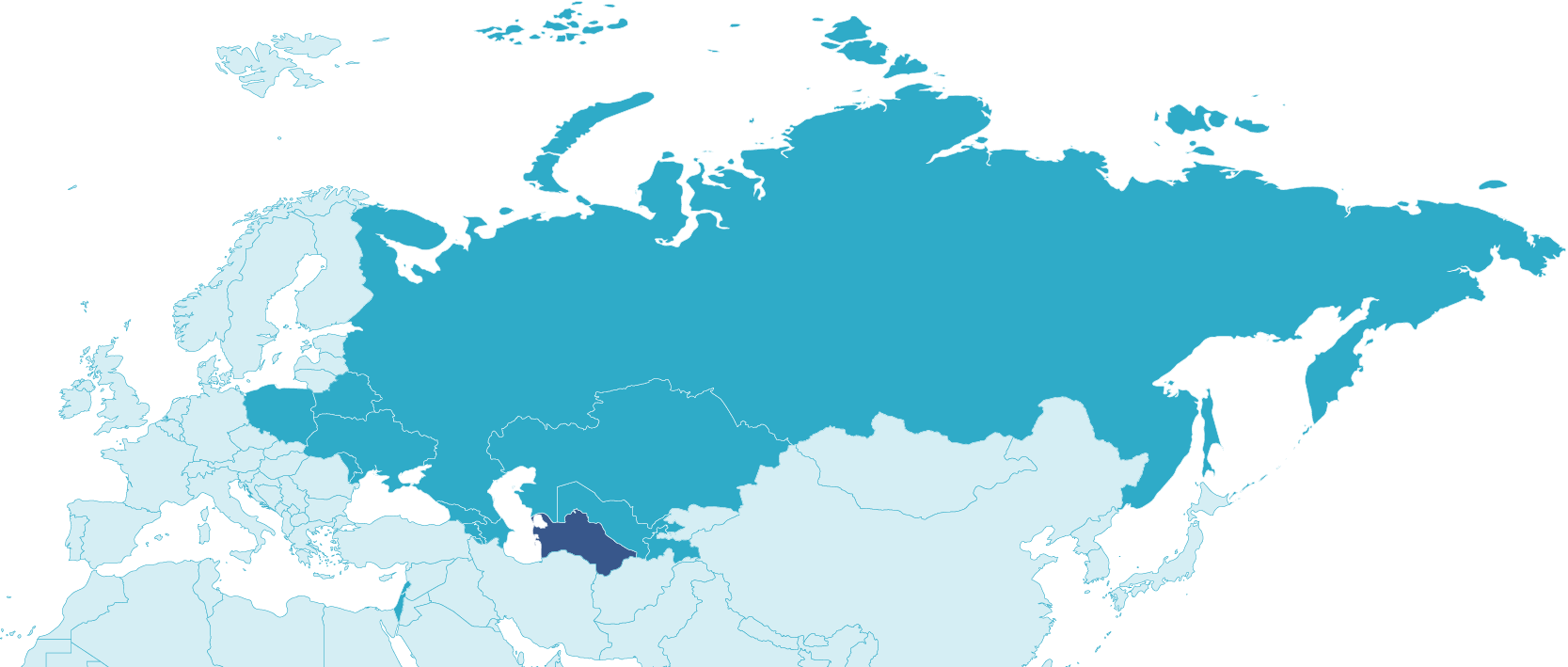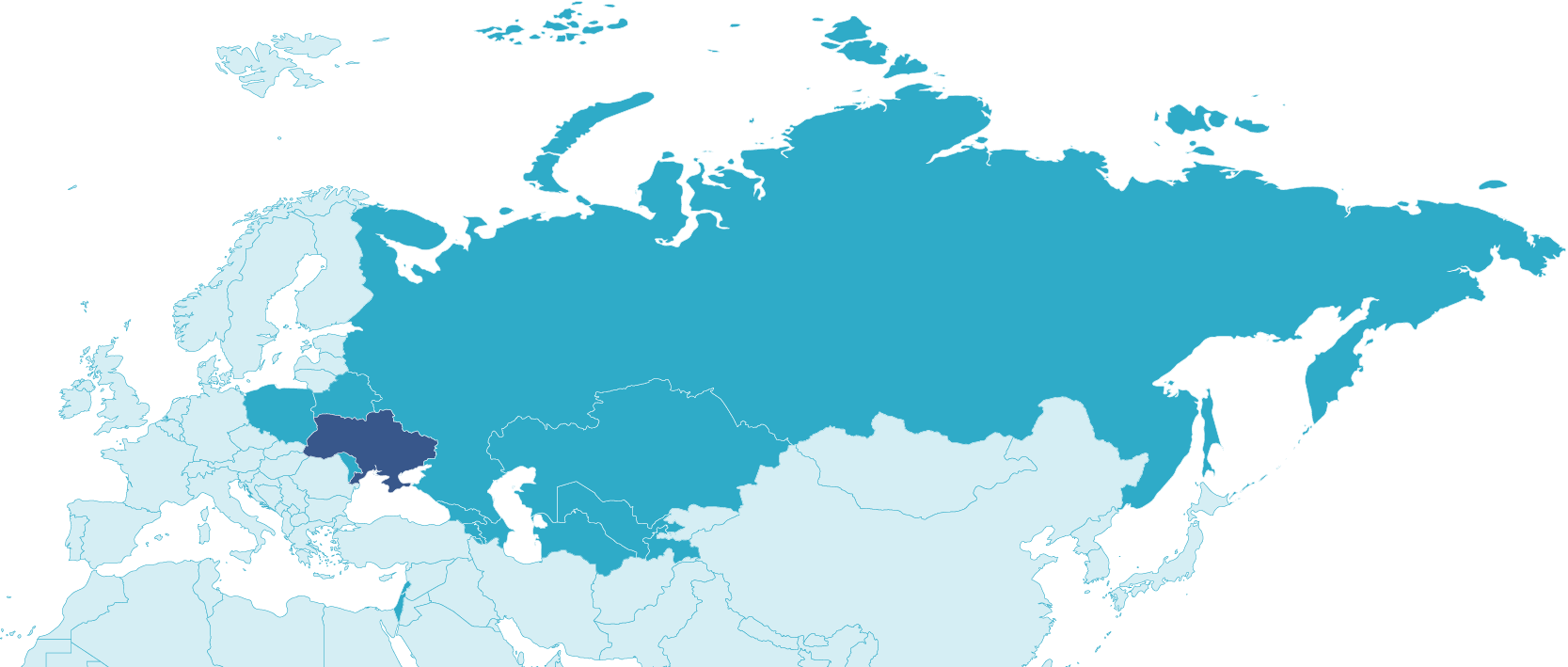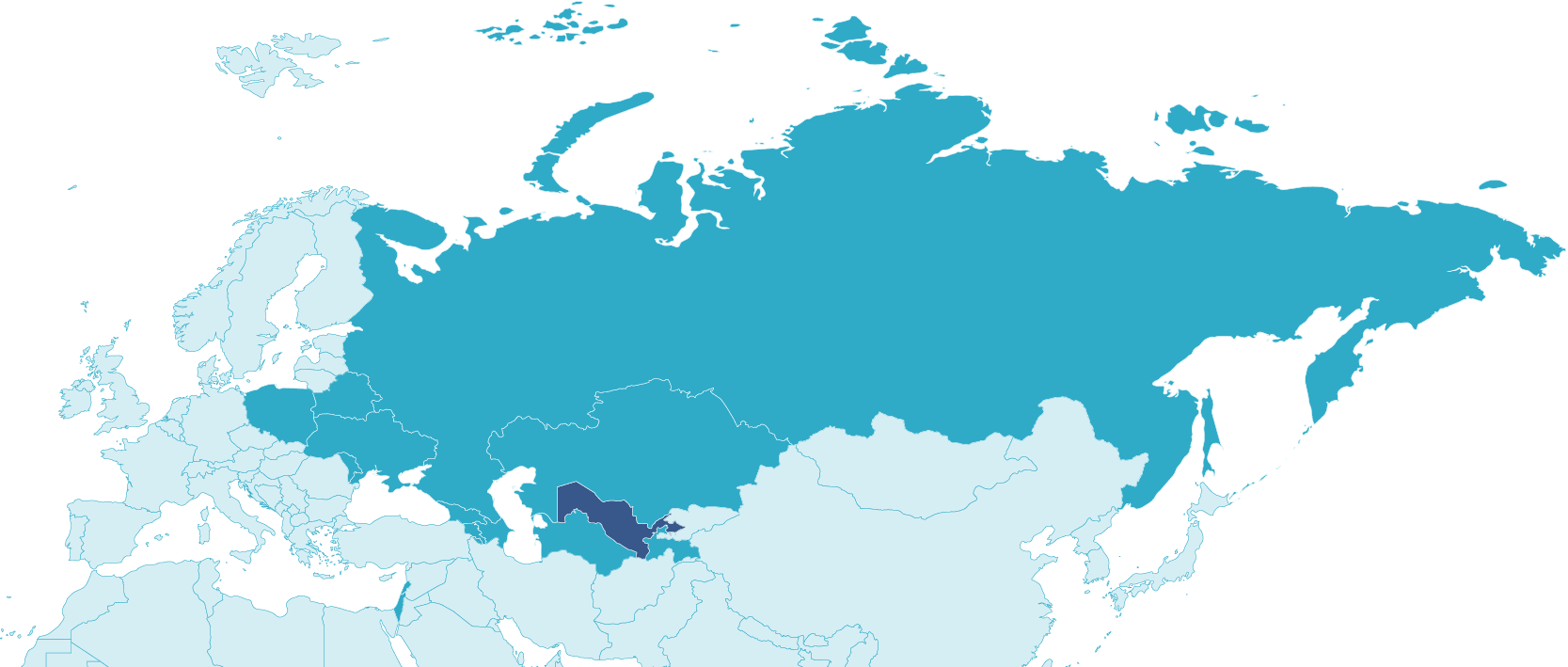Armenia is one of the first nations to formally adopt Christianity (early 4th century). Despite periods of autonomy, over the centuries Armenia came under the sway of various empires including the Roman, Byzantine, Arab, Persian, and Ottoman. The Ottomans ceded the eastern area of Armenia to Russia in 1828; this portion declared its independence in 1918, but was conquered by the Soviet Red Army in 1920.
In 1988, a devastating earthquake struck Armenia, killing 25,000 people and hundreds of thousands homeless. Recovery took a significant amount of time due to the extensive damage. Today, leaders remain preoccupied by the long conflict with Azerbaijan over Nagorno-Karabakh, a primarily Armenian-populated region, assigned to Soviet Azerbaijan in the 1920s by Moscow. Armenia and Azerbaijan began fighting over the area in 1988; the struggle escalated after both countries attained independence from the Soviet Union.
Azerbaijan – a nation with a majority-Turkic and majority-Shia Muslim population – was briefly independent (from 1918 to 1920) following the collapse of the tsarist Russian Empire; it was subsequently incorporated into the Soviet Union for seven decades.
Azerbaijan has yet to resolve its conflict with Armenia over Nagorno-Karabakh, a primarily ethnic Armenian-populated region that Moscow recognized in 1923 as an autonomous republic within Soviet Azerbaijan after Armenia and Azerbaijan disputed the territory’s status. Armenia and Azerbaijan reignited their dispute over the area in 1988; the struggle escalated militarily after both countries attained independence from the Soviet Union in 1991. By May 1994, when a cease-fire took hold, ethnic Armenian forces held not only Nagorno-Karabakh but also seven surrounding provinces in the territory of Azerbaijan. The OSCE Minsk Group, co-chaired by the US, France, and Russia, is the framework established to mediate a peaceful resolution of the conflict.
SGA partners help support Azeri evangelical churches in a variety of ways including resources for national pastors, church-based biblical training through our Antioch Initiative, and children’s ministries. This includes summer camps, Immanuel’s Child Christmas outreach and Compassion Ministries.
The territory that is now Belarus has also been sometimes known in history as “White Russia.” After seven decades as a part of the USSR, Belarus attained its independence in 1991. It has retained closer political and economic ties to Russia than have any of the other former Soviet republics. Belarus and Russia signed a treaty on a two-state union on 8 December 1999 envisioning greater political and economic integration. Full implementation has yet to take place. The country’s first and only directly elected president, Alexander Lukashenko, was elected in 1994.
SGA partners support the ministries of evangelical churches in Belarus primarily through missionary pastor sponsorship and biblical training through the Minsk Theological Seminary. We additionally support church-based youth ministry through Youth IN Ministry and children’s ministries such as Immanuel’s Child, Orphans Reborn, and summer camps, including the provision of Bibles and Christian literature, and Compassion Ministry.
The region of present day Georgia came under Roman influence in the first centuries A.D., and Christianity became the state religion in the 330s. Domination by Persians, Arabs, and Turks was followed by a Georgian golden age (11th-13th centuries) that was cut short by the Mongol invasion of 1236. Subsequently, the Ottoman and Persian empires competed for influence in the region.
Georgia was absorbed into the Russian Empire in the 19th century. Independent for three years (1918-1921) following the Russian revolution, it was forcibly incorporated into the USSR in 1921 and regained its independence when the Soviet Union dissolved in 1991.
Like most indigenous Caucasian people groups, the Georgians do not fit into any of the main ethnic categories of Europe or Asia. The Georgian language is neither Indo European, Turkic, nor Semitic. The country has mostly had Western-leaning or pro-Western leadership since the Soviet breakup.
SGA partners help support Georgian evangelical churches through support of missionary pastors and church-based biblical training through our Antioch Initiative, children’s ministries including Immanuel’s Child and summer camps, as well as provision of Bibles and other literature resources.
The modern State of Israel was established in 1948. The UN General Assembly had proposed to partition the region into an Arab and Jewish state. Arab states rejected the UN plan and were subsequently defeated militarily in the 1948 war that followed British withdrawal from the region. Israel was admitted as a member of the UN in 1949 and saw rapid population growth, primarily due to migration from Europe and the Middle East, over the following years.
Russian-speaking immigrants from Slavic and former Soviet nations played a large role in Israel’s founding, and the Russian-language is the third most spoken language in Israel after Hebrew and Arabic. Thousands of Jewish immigrants from Russian-speaking countries have come to Israel over the course of many years.
SGA helps Russian-speaking congregations in Israel through support of Bible training at Israel College of the Bible in Netanya, Israel, along with students enrolled at four extension centers. These students will become pastors of Russian-speaking congregations and lay ministry leaders for congregations being planted. SGA’s director of Bible training in Israel also travels across the country teaching Bible and theology to Russian-speaking immigrants.
In addition, SGA supports church-planting pastors at three church plants, as well as significant church-based outreach like aid distribution, summer camp ministry, Christmas outreach, plus ministry to the homeless and drug addicts.
Kazakhstan is the largest of the former Soviet republics in Central Asia. Ethnic Kazakhs—historically a mix of Turkic and Mongol nomadic tribes who migrated to the region by the 13th century—were rarely united as a single nation. The area was conquered by Russia in the 18th century, and Kazakhstan became a Soviet Republic in 1936. Soviet policies reduced the number of ethnic Kazakhs in the 1930s and enabled non-ethnic Kazakhs to outnumber natives. During the 1950s and 1960s, Soviet citizens were encouraged to help cultivate Kazakhstan’s northern pastures. This influx of immigrants (mostly Russians, but also some other deported nationalities) further skewed the ethnic mixture.
Non-Muslim ethnic minorities began leaving Kazakhstan in large numbers from the mid-1990s through the mid-2000s and a national program has repatriated about a million ethnic Kazakhs back to Kazakhstan. These trends have allowed Kazakhs to become the majority again. This dramatic demographic shift has also changed the previous religious diversity and made the country more than 70% Muslim.
Kazakhstan’s economy is larger than those of all the other Central Asian states largely due to the country’s vast natural resources. SGA helps national evangelical churches through sponsorship of missionary pastors, and biblically sound training through the Almaty Bible Institute. Children’s ministries such as Orphans Reborn, summer camps, and Immanuel’s Child are also supported, along with much-needed Compassion Ministry.
A large portion of present day Moldovan territory became a province of the Russian Empire in 1812, and then unified with Romania in 1918 in the aftermath of World War I. This territory was then incorporated into the Soviet Union at the close of World War II. Although Moldova has been independent from the Soviet Union since 1991, Russian forces have remained on Moldovan territory east of the Dnister River in the breakaway region of Transnistria.
Communists managed to retain significant influence in Moldova after the Soviet collapse. They gained control of parliament from 2001-09, which ultimately ended with election-related violent protests and a rerun of parliamentary elections in 2009.
Poland’s history as a state began near the middle of the 10th century. By the mid-16th century, the Polish-Lithuanian Commonwealth ruled a vast tract of land in Central and Eastern Europe. During the 18th century, internal disorders weakened the nation, and in a series of agreements between 1772 and 1795, Russia, Prussia, and Austria partitioned Poland among themselves. Poland regained its independence in 1918, only to be overrun by Germany and later by the Soviet Union in World War II. It became a Soviet satellite state following the war. Around the time when the Berlin Wall came down, free elections in 1989 and 1990 brought the communist era to a close. A “shock therapy” program during the early 1990s enabled the country to transform its economy into one of the most robust in Central Europe. Poland joined NATO in 1999 and the EU in 2004.
Modern Russia’s roots can be traced back to the 12th century when the Principality of Muscovy was founded. It emerged from more than 200 years of Mongol domination (13th-15th centuries) and to gradually conquer and absorb surrounding principalities.
In the early 17th century, a new Romanov Dynasty continued this policy of expansion across Siberia to the Pacific. Under Tsar Peter I (ruled 1682-1725), hegemony was extended to the Baltic Sea and the country was renamed the Russian Empire. During the 19th century, more territorial acquisitions were made in Europe and Asia.
Severe poverty, coupled with repeated devastating defeats of the Russian army in World War I led to widespread rioting in the major cities of the Russian Empire and to the overthrow in 1917 of the Romanov monarchy. The communists under Vladimir Lenin seized power soon after and formed the USSR. Josef Stalin (1928-53) strengthened communist rule and Russian dominance of the Soviet Union.
After defeating Germany in World War II as part of an alliance with the US (1941-1945), the USSR expanded its territory and influence in Eastern Europe and emerged as a global power. The Soviet economy and society stagnated in the decades following Stalin’s rule, until General Secretary Mikhail Gorbachev (1985-91) introduced glasnost (openness) and perestroika (restructuring) in an attempt to modernize communism. However, his initiatives inadvertently released forces that by December 1991 splintered the USSR into Russia and 14 other independent republics. Following economic and political turmoil during President Boris Yeltsin’s term (1991-99), Russia shifted toward a centralized state under the leadership of President Vladimir Putin (2000-2008, 2012-present).
SGA serves evangelical churches in Russia through sponsorship of missionary pastors, as well as biblical training through the Novosibirsk Biblical-Theological Seminary and church based training through our Antioch Initiative. Additionally, we support church-based youth ministry through Youth IN Ministry and children’s ministries through Orphans Reborn, summer camps, and Immanuel’s Child. Additionally we provide support through Compassion Ministry, and the provision of Russian-language Bibles and other Christian literature.
The Tajik people came under Russian rule in the 1860s and 1870s, but Russia’s hold on Central Asia weakened following the Revolution of 1917. Bands of indigenous fighters fiercely contested Bolshevik control of the area, which was not fully reestablished until 1925. Tajikistan was first created as an autonomous republic within Uzbekistan in 1924, but Soviet communist leaders designated Tajikistan a separate republic in 1929.
Ethnic Uzbeks form a substantial minority in Tajikistan, and ethnic Tajiks an even larger minority in Uzbekistan. Tajikistan became independent in 1991 following the breakup of the Soviet Union, and experienced a civil war between regional factions from 1992 to 1997.
The country remains the poorest of the former Soviet nations. Its economy continues to face major challenges, including dependence on remittances from Tajiks working in Russia, charges of corruption, and the opiate trade in neighboring Afghanistan. SGA partners help Tajik evangelical churches by supporting the ministries of missionary pastors and biblical training at the Tajik Bible Institute. SGA also assists these churches through supporting Children’s ministries through Orphans Reborn, summer camps, and Immanuel’s Child, along with providing food and other humanitarian aid as needed through Compassion Ministry.
Present-day Turkmenistan covers territory that has been at the crossroads of civilizations for centuries. The area was ruled in antiquity by various Persian empires, and was conquered by Alexander the Great, Muslim armies, the Mongols, Turkic warriors, and eventually by the Russian Empire.
In medieval times, the country was an important stop on the Silk Road. Annexed by Russia in the late 1800s, Turkmenistan later figured prominently in the anti-Bolshevik movement in Central Asia. In 1924, Turkmenistan became a Soviet republic, and achieved independence upon the dissolution of the USSR in 1991.
Extensive hydrocarbon/natural gas reserves, which have yet to be fully exploited, have begun to transform the country. Turkmenistan is one of the most difficult countries for evangelical churches, and the government maintains tight control over religious groups. SGA partners discreetly help provide ministry support of missionary pastors, as well as children’s ministries such as Orphans Reborn, summer camps and Immanuel’s Child.
The country now known as Ukraine was the center of the first eastern Slavic state called Kyivan Rus. During the 10th and 11th centuries, Kyivan Rus was the largest and most powerful state in Europe. Weakened by internecine quarrels and Mongol invasions, Kyivan Rus was incorporated into the Grand Duchy of Lithuania and eventually into the Polish-Lithuanian Commonwealth. The cultural and religious legacy of Kyivan Rus laid the foundation for Ukrainian nationalism through subsequent centuries.
A new Ukrainian state, the Cossack Hetmanate, was established during the mid-17th century after an uprising against the Poles. Despite continuous Muscovite pressure, the Hetmanate managed to remain autonomous for well over 100 years. During the latter part of the 18th century, the Russian Empire absorbed most of the Ukrainian territory.
Following the collapse of tsarist Russia in 1917, Ukraine achieved a short-lived period of independence (1917-20), but was re-conquered and endured a brutal Soviet rule that engineered two forced famines (1921-22 and 1932-33) in which over 8 million died. In World War II, German and Soviet armies were responsible for 7 to 8 million more deaths. Ukraine is also the site of the 1986 Chernobyl nuclear disaster, which continues to have health impacts in the region to this day. Ukraine achieved independence in 1991 with the dissolution of the USSR, yet political turmoil continues and prosperity remains elusive. Fighting broke out in eastern Ukraine in 2014 after the country’s pro-Russian president was ousted. The Crimean peninsula was seized and annexed by Russia as a result. The conflict remains unsettled.
Ukraine has long been a global breadbasket because of its extensive, fertile farmlands and is one of the world’s largest grain exporters. The diversified economy of Ukraine includes a large heavy industry sector, particularly in aerospace and industrial equipment.
Ukraine also has the distinction of allowing the most freedom for evangelical churches of all the former Soviet countries. SGA supports the ministries of missionary pastors and biblical training through Irpen Biblical Seminary. We also serve the church based children’s ministries—Orphans Reborn, summer camps, Immanuel’s Child, and Youth IN Ministry. We assist with Compassion Ministry, and provision of other humanitarian aid as needed, especially in the war torn eastern regions of Ukraine.
Uzbekistan is yet another Central Asian country located along the historic Silk Road connecting China with the Middle East and Rome. The Trans-Caspian Railway—built in the 19th century—linked the Caspian Sea with Uzbekistan during the Russian Empire’s expansion. Russia conquered the territory of present-day Uzbekistan in the late 19th century. Stiff resistance to the Red Army after the Bolshevik Revolution was eventually suppressed and a Soviet socialist republic established in 1924.
Independent since 1991 upon the dissolution of the USSR, the country is striving to reduce its dependence on the cotton monoculture by diversifying agricultural production while developing its mineral and petroleum export capacity and increasing its manufacturing base. Poverty remains a problem for many but has been declining.
Ministry is difficult for evangelical churches in Uzbekistan. The government maintains tight control over all religious groups, sparked in part by its fear of radical Islamic uprisings. SGA supports the ministries of Uzbek churches as God opens the opportunities, including through missionary pastor sponsorship, children’s ministries such as Immanuel’s Child, summer camps, humanitarian aid, Compassion Ministry, and other helps.
